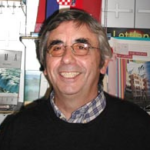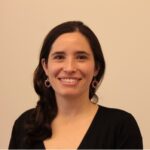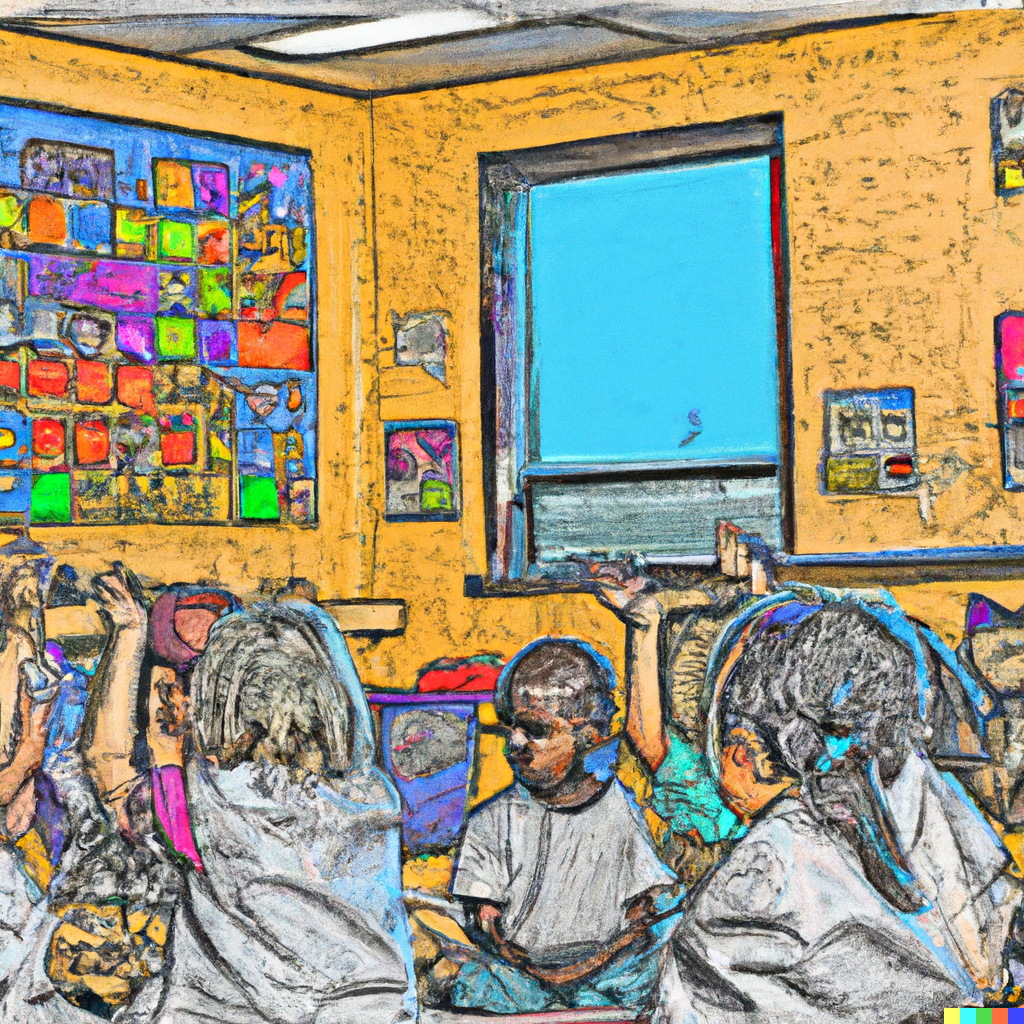Grup de Recerca en Educació, Interacció i Plurilingüisme
Grupo de Investigación en Educación, Interacción y Plurilingüismo
Research Group for Education, Interaction and Plurilingualism
GREIP is the Research Group for Education, Interaction and Plurilingualism, recognised by the autonomous Government of Catalonia since 2005. We work closely with primary, secondary and university teachers, educators in non-formal contexts, school management teams and decision-makers for educational policies. We work with researchers from different parts of the world with the aim of advancing knowledge about language education in the twenty-first century.
What is GREIP?
Founded in the last decade of the twentieth century, GREIP is a team of researchers specialising in multilingual education in formal and non-formal contexts. Throughout its history, the group has established numerous and fruitful alliances with individuals and research teams from different parts of the world, as well as with primary, secondary and higher education centres, and non-formal educational settings. These partnerships have contributed to the vast knowledge of the GREIP team in many different areas of research in plurilingual education and imbued our team with a passion to continue collaborative, ethnographic sociolinguistic studies, to contribute to theory-building and teaching innovation, and to advance knowledge and practices for inclusive plurilingual didactics (see areas of teaching and research).
We are a competitively funded research group (at both national and international levels) and have received continuous funding from AGAUR (the Agency for Management of University and Research Grants) since 2005.
- 2021: SGR 00084 (Funding of 60,000€). PI: Dr. Melinda Dooly
- 2017: SGR 774 (Funding of 36,800€). PI: Dr. Melinda Dooly
- 2014: SGR 595 (Funding of 30,600€). PI: Dr. Melinda Dooly
- 2009: SGR 1273 (Funding of 35,200€). PI: Dr. Luci Nussbaum
- 2005: SGR 00330 (Funding of 49,000€). PI: Dr. Luci Nussbaum
- Formerly Cercle d’Anàlisi del Discurs (CAD). PI: Dr. Luci Nussbaum
Who is GREIP?
Research team members





(retired)


(Founder GREIP, retired)




(Margarita salas
2023-2025 )

Research Support
Technician
Associate members: Dr. Nathaly González-Acevedo, Universitat Autònoma de Barcelona; Mónica López Vera, Escola Purificación Salas i Xandri, Sant Quirze del Vallès i UAB; Maria Mont, Centre de Recursos Pedagògics del Vallès Oriental IV i UAB; Dr. Jordi Pérez Badenas, Universitat Autònoma de Barcelona; Cèlia Pratginestós Pou, Universitat Autònoma de Barcelona; Dr. Berta Torras Vila, Universitat Autònoma de Barcelona
Former members (retired or with posts in other universities or countries: Dr. Victor Corona, University of Lyon; Dr. Anna Czura, University of Wrocław (former Marie Skłodowska-Curie Fellow); Dr. Mandy Deal, International University of Catalonia; Marta Juanhuix Piqueras, Autonomous University of Barcelona; Dr. Xavier Pascual i Calvo, Official School of Languages; Dr. Adriana Patiño, University of Southampton; Dr. Virginia Unamuno, CONICET.
External Experts (long-term collaboration)
- Ufuk Balaman, HUMAN Research Centre, Hacettepe University, Turkey.
- Laia Canals, Universitat Oberta de Catalunya.
- Eva Codó, English Department at the Universitat Autònoma de Barcelona.
- Víctor Corona, core member of the group until 2013.
- Luz Dary Cruz Forero, Secretariat of Education of Dosquebradas, Ministry of National Education of Colombia: Bogota, Risaralda, Colombia
- Francesca Helm, Universitat de Padova, Italy.
- Lorenza Mondada, Univertität Basel, Switzerland.
- Robert O’Dowd, Universidad de León, Spain.
- Adriana Patiño, (core member of the group until 2011), Southampton University, UK.
- Alistair Ross, Jean Monnet ad personam professor, European Commission/London Metropolitan Unviersity, UK.
- Randall Sadler, University of Illinois at Urbana-Champaign, USA.
- Paul Seedhouse, University of Newcastle, UK.
- Olcay Sert, Hacettepe University, Turkey / Mälardalen University, Sweden.
- Steve Thorne, Portland University, USA.
- Constanza Tolosa, The University of Auckland, New Zealand.
- Vincenza Tudini, University of South Australia.
- Virgínia Unamuno, (core member of the group until 2011), CONICET, Argentina.
Collaboration with other entities
Other Research Groups:
- Centre for Research in Educational and Social Inclusion
- Cercle de Lingüística Aplicada (CLA)
- Competencia Interlingüística e Intercultural en la Enseñanza y el Aprendizaje de las Lenguas (CILCEAL)
- Comunicación Intercultural y Estrategias de Negociación (CIEN)
- Discourse Social Interaction and Translation (DSIT) Lab Workshop
- Education Futures Centre, University of New South Wales, Australia
- Estudis del Discurs (GED)
- Hacettepe University Micro Analysis Social Interaction and Learning Research Centre (HUMAN)
- Llengua, Cultura i Identitat en l’Era Global (IdentiCat)
- London Knowledge Lab (LKL)
- Mälardalen INteraction and Didactics (MIND)
- Multimodality Satellite Research Lab
Institutions:
- CONICET (National Scientific and Technical Research Council), Argentina
- Departament d’Ensenyament de la Generalitat de Catalunya
- EDISO, Associació d’Estudis sobre Discurs i Societat
- Fundació Jaume Bofill / Programa LECXIT: Lectura per a l’èxit educatiu
- ICE de la UAB (activitats formatives): https://pagines.uab.cat/ice/
- Institut Municipal d’Educació de Barcelona (IMEB)
- UniCollaboration Association, EU
Education Centres:
- CEIP St. Jordi, Mollet del Vallès
- Centre de Recursos Pedagògics del Vallès Oriental IV
- Escola Purificació Salas i Xandri (Sant Quirze del Vallès)
- Institut Federica Montseny (Badia del Vallès)
- Institut Torre del Palau (Terrassa)
Non-formal education entities:
- Immerse Online, USA
- Global Story Bridges, USA
- Leeds’ Young Authors, UK
- Casa Asia, Spain
International Cooperation
Since it was constituted, GREIP has actively participated in numerous international cooperation projects, primarily in Argentina and Nicaragua.
In Argentina:
- Bilingual Intercultural Education in the Impenetrable (Chaco, Argentina): This project involved the detection, exchange, and dissemination of educational and training experiences.
- Fundació Autònoma Solidària – 2014-2015
- Aboriginal Languages and Multilingual Teaching: GREIP conducted a project aimed at diagnosing the situation and providing training for Indigenous teachers in Chaco, Argentina
- Fundació ‘Autònoma Solidària’ – 2011
In Nicaragua:
Advisory services for the training of bilingual teachers on the Atlantic coast of Nicaragua, giving seminars; reporting on the sociolinguistic situation of the Miskito language in Bilwi, capital of the region.
- Fons Català de Cooperació per al Desenvolupament.
Additionally, Melinda Dooly, Dolors Masats, Artur Noguerol, and Luci Nussbaum have participated in various courses of the Master’s Degree in Specific Didactics, which was organised by the UAB’s Institute of the Education (ICE-UAB) and taught at different venues of the National Autonomous University of Nicaragua.
Areas of research
Over the years the group has focused its research work on the following areas: plurilingual and multimodal interactive practices; interaction, mediation and language learning; school reception of students of immigrant origin; linguistic socialisation and construction of identities; pluralistic approaches to language learning; integrated approaches to language teaching; task-based and project-based language teaching; telecollaboration and the use of technologies in the teaching and learning of languages.
Theoretical and methodological frameworks: ethnography of communication; interactional sociolinguistics, conversation analysis; ethnomethodology; categorisation theory; discourse analysis.
Fieldwork: primary, secondary and university educational institutions; face-to-face and virtual non-formal educational environments.
Fields of application of the research results: training of students and teachers of primary, secondary and university levels; school language policies and programmes; plurilingual education.
Our history

GREIP was constituted at the end of the 1980s by Dr Amparo Tuson, then coordinated by Dr Luci Nussbaum until 2014. Initially formed within the framework of the Discourse Analysis Circle (DAC; Cercle d’Anàlisi del Discurs or CAD in Catalan), the group emerged around nationally funded research projects and was formally established as GREIP in 2005. Dr Melinda Dooly led the group from 2015 until June 2025, and it is currently directed by Dr Emilee Moore.
The group was founded with the objective of working in the area of discourse analysis and since then has expanded to many different areas of research related to language teaching and learning. Since its beginnings, the group has carried out national and internationally funded research projects and has had a hand in the training of numerous researchers in plurilingualism and education.
Since 2005, GREIP has been granted the recognition of Consolidated Research Group by AGAUR (the Agency for Management of University and Research Grants of the Government of Catalonia):
Fifth stage as a Consolidated Research Group (2021 – 2025)
Sponsor: the Agency for Management of University and Research Grants of the Government of Catalonia 2021 SGR 00084
Budget: 60.000€
Research leader: Dr Melinda Dooly Owenby
Research team: Dra. Eulàlia Borràs Riba, Dr. Melinda Ann Dooly, Dr. Júlia Llompart, Dr. Dolors Masats Viladoms, Dr Emilee Moore, Dr. Xavier Fontich, Dr. Amparo Tuson Valls, Dr. Claudia Vallejo, Dr. Denise Holguin, Johanna Buitrago.
Fourth stage as a Consolidated Research Group (2017-2019; extension to 2021)
Sponsor: the Agency for Management of University and Research Grants of the Government of Catalonia 2017 SGR 774
Budget: 36.800€
Research leader: Dr Melinda Dooly Owenby
Research team: Dra. Eulàlia Borràs Riba, Dr. Mandy Deal, Dr. Melinda Ann Dooly, Marta Juanhuix Piqueras, Dr. Júlia Llompart, Dr. Dolors Masats Viladoms, María Mont Algamasilla, Dr Emilee Moore, Dr. Xavier Pascual i Calvo, Joan Ploettner, Dr. Amparo Tuson Valls, Claudia Vallejo.
Third stage as Consolidated Research Group (2014-2016)
Sponsor:the Agency for Management of University and Research Grants of the Government of Catalonia 595-SGR 2014
Budget: 30.600€
Research leader: Dr Melinda Dooly
Research team: Dr. Eulàlia Borràs, Dr. Laia Canals, Dr.Melinda Ann Dooly Owenby, Dr. Dolors Masats Viladoms, Dr. Emilee Moore, Dr. Artur Noguerol Rodrigo, Dr. Luci Nussbaum Capdevila, Julia Llompart Esbert, Dr. Xavier Pascual i Calvo, Dr. Amparo Tuson Valls, Claudia Vallejo
Second stage as Consolidated Research Group 2009-2013
Sponsor:the Agency for Management of University and Research Grants of the Government of Catalonia 1273 SGR 2009
Budget: 35.200 €
Research leader:Dr Luci Nussbaum Capdevila
Research team: Eulàlia Borràs Riba, Víctor Corona Villavicencio, Dr Melinda Ann Dooly Owenby, Dr Cristina Escobar Urmeneta, Natalia Evnitskaya, Dr Dolors Masats Viladoms, Emilee Moore, Dr Artur Noguerol Rodrigo, Dr Luci Nussbaum Capdevila, Dr. Xavier Pascual i Calvo, Dr Amparo Tuson Valls, Dra. Laia Canals, Claudia Vallejo.
First stage as Consolidated Research Group (2005-2008)
Sponsor:the Agency for Management of University and Research Grants of the Government of Catalonia 00330-SGR 2005
Budget:49.000 €
Research leader: Dr Luci Nussbaum Capdevila
Research team at the Universitat Autònoma de Barcelona: Dr Eva Codó Olsina, Dr Melinda Ann Dooly Owenby, Dr Cristina Escobar Urmeneta, Dolors Masats Viladoms, Dr Artur Noguerol Rodrigo, Dr Luci Nussbaum Capdevila, Àngels Prats Pla, Dr Amparo Tuson Valls, Dr Virginia Unamuno Kaschapava, Dr Núria Vilà Miguel
Research team at the Universitat de Lleida: Dr Josep Maria Cots Caimons, Dr Montse Irun Chavarría, Dr Enric Llurda Giménez, Xavier Martín Rubio

GREIP statement in favour of the Catalan plurilingual educational model
Plurilingual education in Catalonia has specific features: a) the model is the result of consensus amongst all citizens, since it was first implemented; b) it is sensitive to and has been continually adapted to the sociolinguistic changes of the Catalan society to ensure social cohesion and respect for the diversity of origins of all students; c) it has been internationally recognised as exemplary; and d) it has proved to be highly effective in assessing the plurilingual competences of the school population in primary and secondary education.
These features of our language education model are a source of pride for the educational community and are testimony to why the model should be sustained as it stands. It is our position that none of these principles should be altered in any way. For this reason, in our capacity as an institution dedicated to education, we insist on the preservation of this model and, if necessary, the use of civil disobedience and peaceful resistance against any changes that would undermine this language education model.